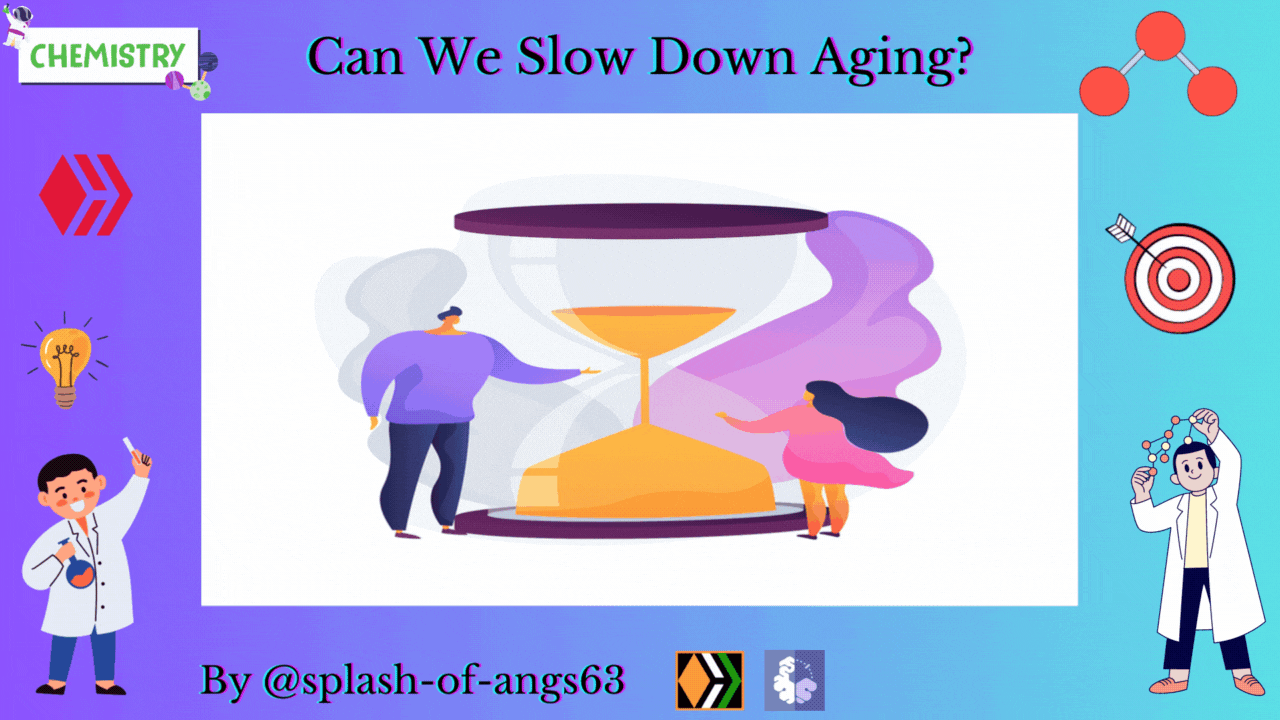Greetings to everyone! How you guys are doing? I was away from writing blogs for few days as I was having my final exams. Well apparently the theory papers were completed ereyesterday. So, now only my project work presentation and thesis submission is left to be completed. So, I thought of writing again as I am free to do so. Today, I am going to talk about the natural aging process and is there any way to delay it? I mean who does not want to be forever young or have that shining face not being shadowed by a pale one. Is it really possible to do so? Science is reaching new heights but does science has solution for this? Come, let's discuss and find out!

Aging is a biological process and it is an irreversible process. Right? True, but with new ground breaking researches there have been emerging some ray of hopes to slow down it. What if we slow down the 'pathological aging' if we are unable to do anything with the 'chronological' one! After all aging is a sign of accelerated inflammation, depletion and wear and tear.
Researchers have been studying 'calorie restriction' as a potent method for extending lifespan. Numerous promising trials have been conducted on animals. But among them, a case study published in Nature Aging, is significant because it also explains that calorie restriction may also slow down aging in humans.
A group of researchers led by scientists from Columbia University Mailman School of Public Health, have done an experiment and tracked data from the trial of a group of more than 200 healthy adults ages from 21 to 50. Some of the participants were directed to reduce their calorie intake by 25% for a period of two years, while the rest group was instructed to maintain their normal diet. Previous results on this kind of trials showed signs of better health including improved markers of cholesterol, blood pressure and blood sugar compared to those who ate regularly.
This study was conducted to see if people with a restricted calorie diet also aged more slowly than those who ate normally. They used blood samples from individuals when the study started, at the end of one year mark and finally at the end of 2 year mark to look for signs of aging in participants.

They used three different methods to analyze the DNA. Two of the methods calculated the participant's biological ages regardless of how old they were chronologically. These two methods were based on the state of their DNA. No significant changes were observed at the end of 2 years between the two groups.
However, the third model was constructed as such to find out the rate at which someone is aging. Under such circumstances, the researchers found out that the individuals with restricted calorie intake led to a 2 to 3% slower pace of aging. That may not sound staggering but according to the study's authors, previous research suggested a similar slow down in biological aging could reduce someone's risk of death by up to 15% which is roughly the same as the longevity benefit associated with quitting smoking habit.
That's only an estimate, though. As it was conducted for two years only, it is impossible to say exactly or accurately of how their diets affected their longevity and life long health. Moreover, a 25% drop in calorie intake is dramatic and unsustainable for many people. Even many of the participants did not stick to the plan for a full two years. However, those who were able to reduce their diet by 10% still saw some aging benefits.
The study also raised concerns among other researchers regarding the potential drawback of long-term calorie restrictions among people including mental-health consequences with a decline in bone density and muscle mass. Similar study on non-human primates also showed extended lifespan but may also change the composition of brain, although not in the ways that affected cognitive function.
Long-term calorie restriction is not a practical solution for slowing aging. But the study revealed that slowing aging in humans is possible and provided benchmark for effects of more scalable interventions including intermittent fasting and drug therapies.
Although even if it is not inti practically advice yet, the findings of the study paved the way for practical solution in the upcoming days- a step forward in the effort to understand and perhaps someday the negative effects of aging could be slowed down or even revered.
Studying The Cluster Compounds: The LNCC |ChemFam #39|
Biochemistry of Calcium: Role of Calcium in Muscle Contraction |ChemFam #38|
Biosynthesis of Fatty Acids: De Novo Synthesis of Fatty Acids |ChemFam #37|
Hapticity and The Eighteen Electron Rule |ChemFam #36|
An Introduction To Organometallic Chemistry |ChemFam #35|
Applications of Zeolites: The 3D Molecular Sieves |ChemFam #34|
Properties of Zeolites: The 3D Molecular Sieves |ChemFam #33|
Zeolites: The 3D Molecular Sieves |ChemFam #32|
The Beauty of Eucalyptus Tree |ChemFam #31|
The Accidental Cure for Cancer: Cisplatin |ChemFam #29|
Acceptorless Dehydrogenation and Related Transformations |ChemFam #28|
PS The thumbnail image is being created by me using canva.com by using template image from freepik


